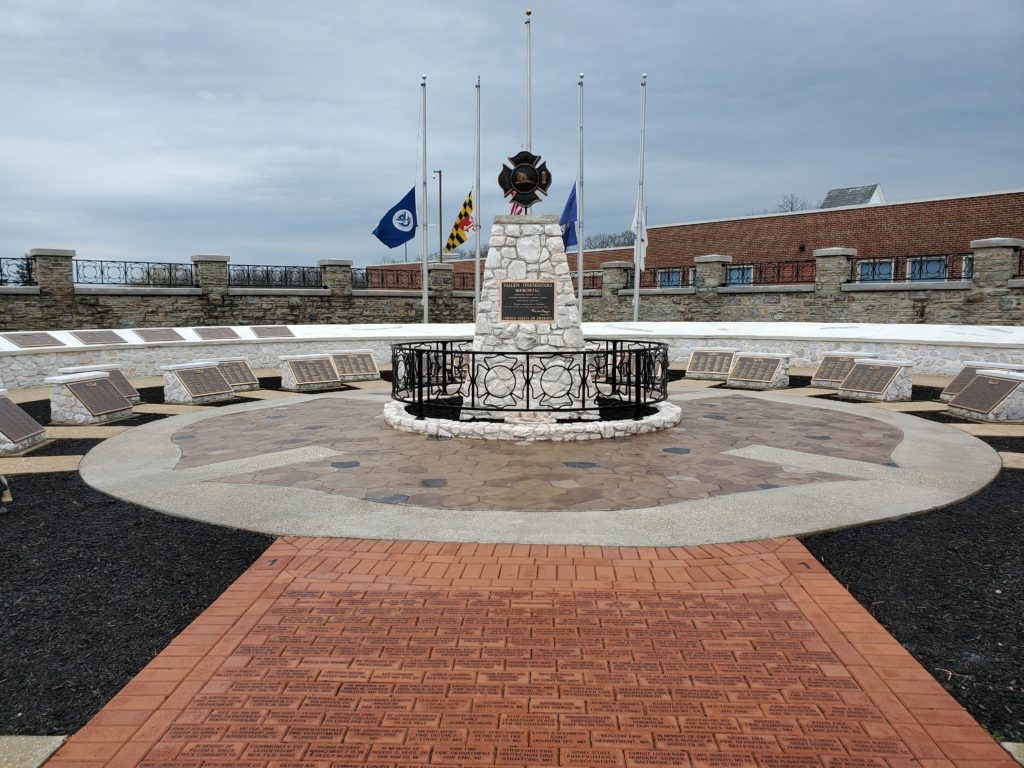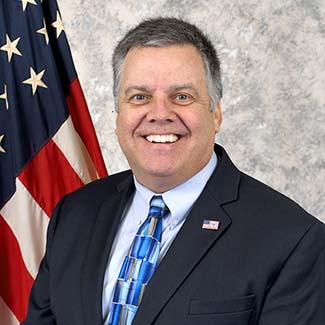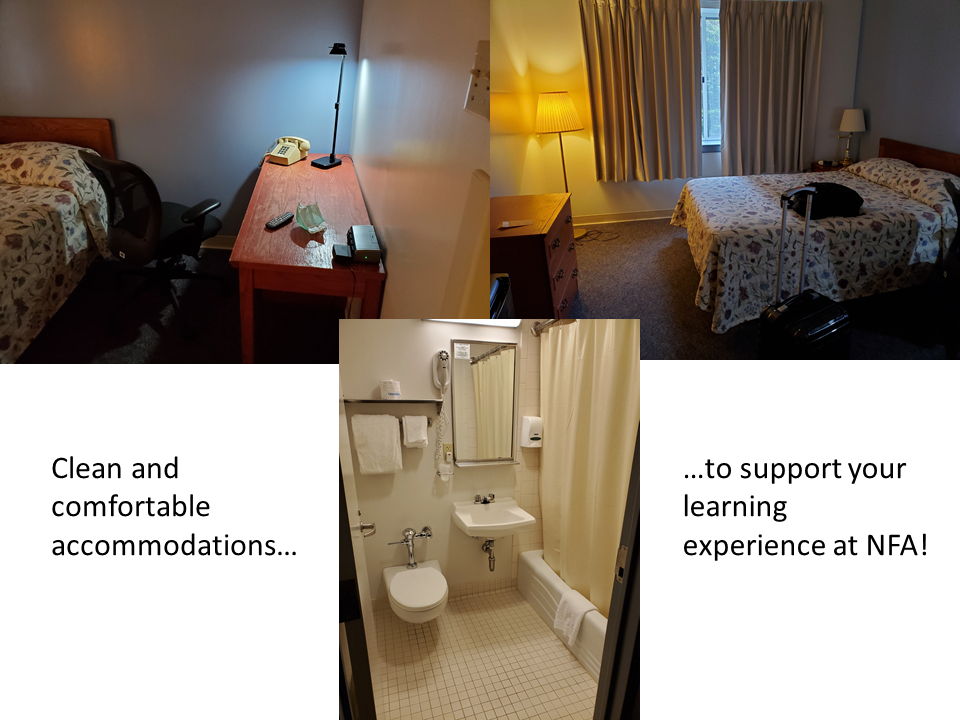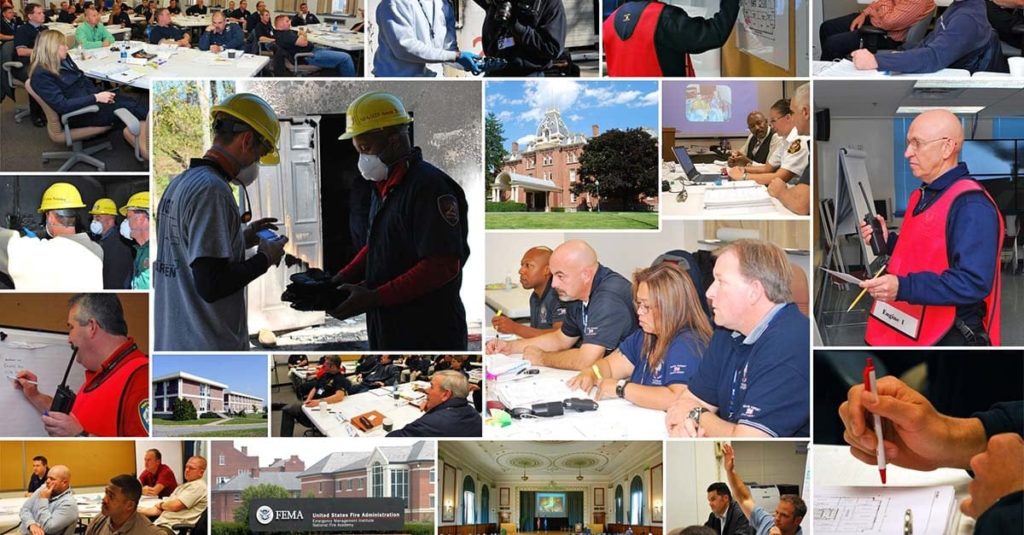By: Robert Avsec, Executive Fire officer
This past Friday and Saturday, I attended the 32nd Executive Fire Officer and Leadership Symposium at the National Fire Academy in Emmitsburg, Maryland. It was the first time I’d returned to NFA since about 2005 or 2006.
This was my first time, however, returning as a freelance writer and not an active fire officer with the Chesterfield (Va.) Fire and EMS Department, where I served for 26 years. Nonetheless, I still got the same “chills down my spine” as I drove onto campus (After having my car inspected by campus security), that feeling I was returning home to what I and many others consider “the home of the American Fire Service.”
My first experience as a student at NFA was when I traveled with several of my colleagues from Chesterfield to attend Virginia State Weekend. I can’t remember which of the nine course offerings that weekend I attended but I sure remember seeing the magnificent campus and walking its grounds. I told myself, right then and there, “Self, you need to come back here soon.” And I did, many times.
See, in my fire service career, I was fortunate to have been able to attend twelve two-week long resident courses at NFA (Which included my four courses in the Executive Fire Officer Program) and for that I have the leadership of Chesterfield Fire and EMS to thank. It also helped that it was only a 190-mile drive from my home in Chesterfield County to NFA.

I was also fortunate to have had the opportunity to become a contract instructor for NFA, first with the Infection Control for First Line Supervisors course, and later the Incident Command System for EMS course. I had the opportunity to teach these two-day programs for 30+ State Weekends on the NFA campus, as well as “on the road” direct-deliveries in places like Atlanta, Indianapolis, Portland, Maine, and Jonesboro, Arkansas over a 10-year span.
It’s safe to say that with all those experiences, as both a student and contract instructor, it’s little wonder that the NFA experience became part of my “DNA” as a fire service professional. And having that “NFA DNA” has been a big part of my success as a freelance writer for the past 12 years as I’ve written hundreds of articles for fire service and EMS websites (e.g., FireRescue1.com, EMS1.com) and private clients in the fire service and EMS space. And for my own blog, Talking “Shop” 4 Fire and EMS.
However, I was still a bit surprised when NFA Superintendent Eric Gabliks, in his opening remarks to the symposium attendees, stated that there were still too many firefighters in officers who didn’t know about NFA. How could this be in the era of the Internet and the “explosion of social media,” especially with Superintendent Gabliks being a very adept user of social media to promote NFA?
I certainly don’t have the answer to that question, but I’m writing this piece to do my part to “promote and amplify” this great learning institution to the fire service in the hopes we can start changing that.
Five Reasons Why You Should Get to NFA For a Class
1. It’s free. When you’re accepted into a resident course on campus, the NFA will provide roundtrip coach airfare if you must fly or mileage stipend if you must drive. And once you’re on campus, your lodging is free, and you’ll have a single occupancy dorm room with your own toilet and bathroom facilities! (NFA does not provide a travel stipend for two-day programs at NFA (e.g., State Weekends).
The only expense for your fire department is the purchase of your meal ticket to the on-campus Dining Hall. Your department does have to incur whatever expense might be necessary to facilitate you being away at NFA (e.g., overtime costs to cover your position.)
2. You’ll receive top notch courses developed by fire service and educational development professionals and delivered by knowledgeable and skilled fire service professionals—both active duty and retired—as well as non-fire service subject matter experts, all of whom have earned advanced college degrees.
3. You’ll meet and work and learn with a diverse student population that comes from all parts of the U.S. and who represent fire and EMS departments of all sizes and configurations. You will also have the opportunity to attend classes that have firefighters from other countries, as many of the two-week resident courses have a seat allocated to international students (In one of my classes, our international student was a Fire Commissioner for one of Israel’s nine fire districts.)
Read Next. What My EFOP Experience Meant to Me and My Fire Department
4. You’ll learn, as I did following my first two-week resident class, Management of EMS, that I didn’t work for the best fire and EMS department and I didn’t work for the worst; we were, IMHO, more towards the former than the latter. I gained “perspective,” something that would serve me well in my career, especially during episodes when things weren’t changing as quickly as I would have preferred. But perspective helped me to learn about something else, that thing called patience (Something I’m still learning to this day.)
5. There have never been more courses available! One of the positives that has come out of the NFA’s one-year shut-down of classes during the height of the COVID-19 is that it gave the NFA staff the opportunity to really “up its game” for on-line course delivery. So now, even with the resumption of in-person classes, the current NFA Course catalogue is “chock full” of in-person courses, on-line courses, and hybrid courses that combine in-person classes and on-line classes.
So, what are you waiting for? Visit the National Fire Academy courses, catalogs, and schedules webpage and get started today on your professional development as a fire service leader whether you’re currently in a leadership position or want to go in that direction for the future.
 Fire & EMS Leader Pro The job of old firefighters is to teach young firefighters how to become old firefighters!
Fire & EMS Leader Pro The job of old firefighters is to teach young firefighters how to become old firefighters!



